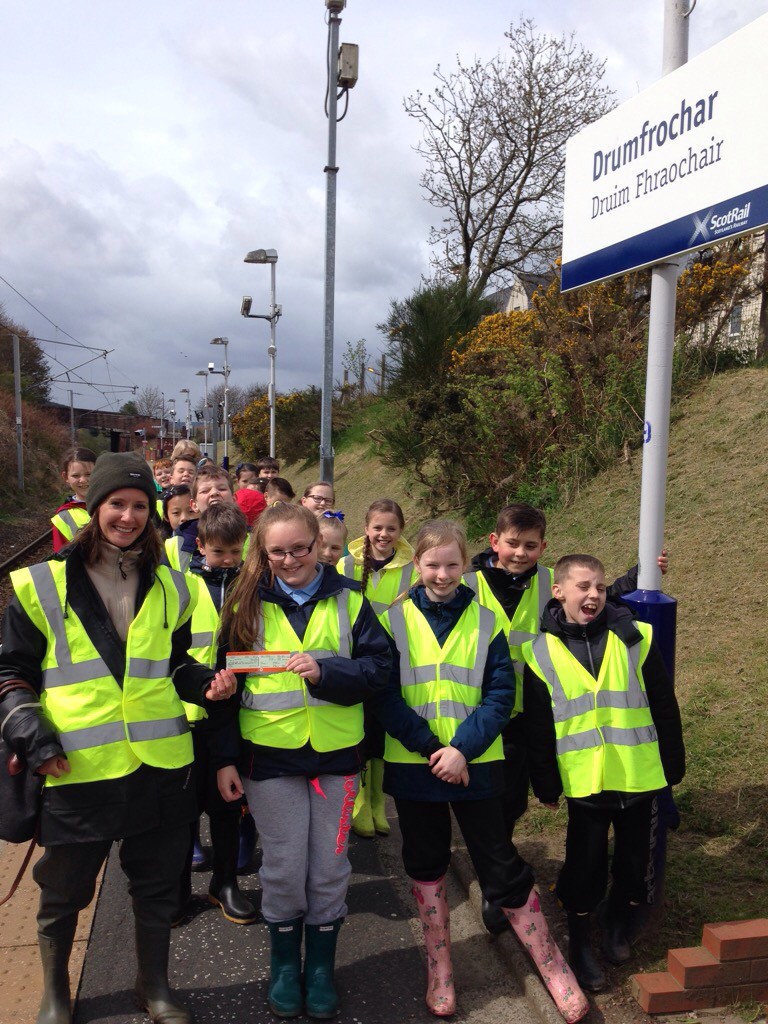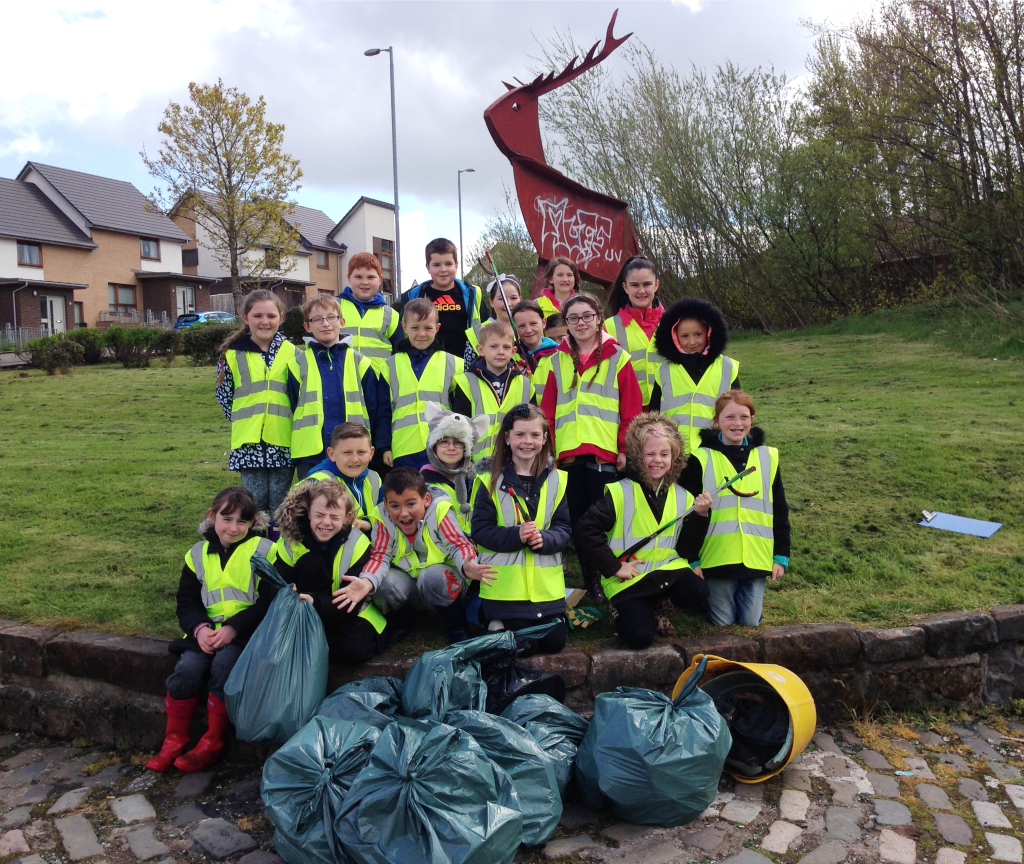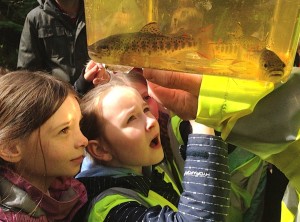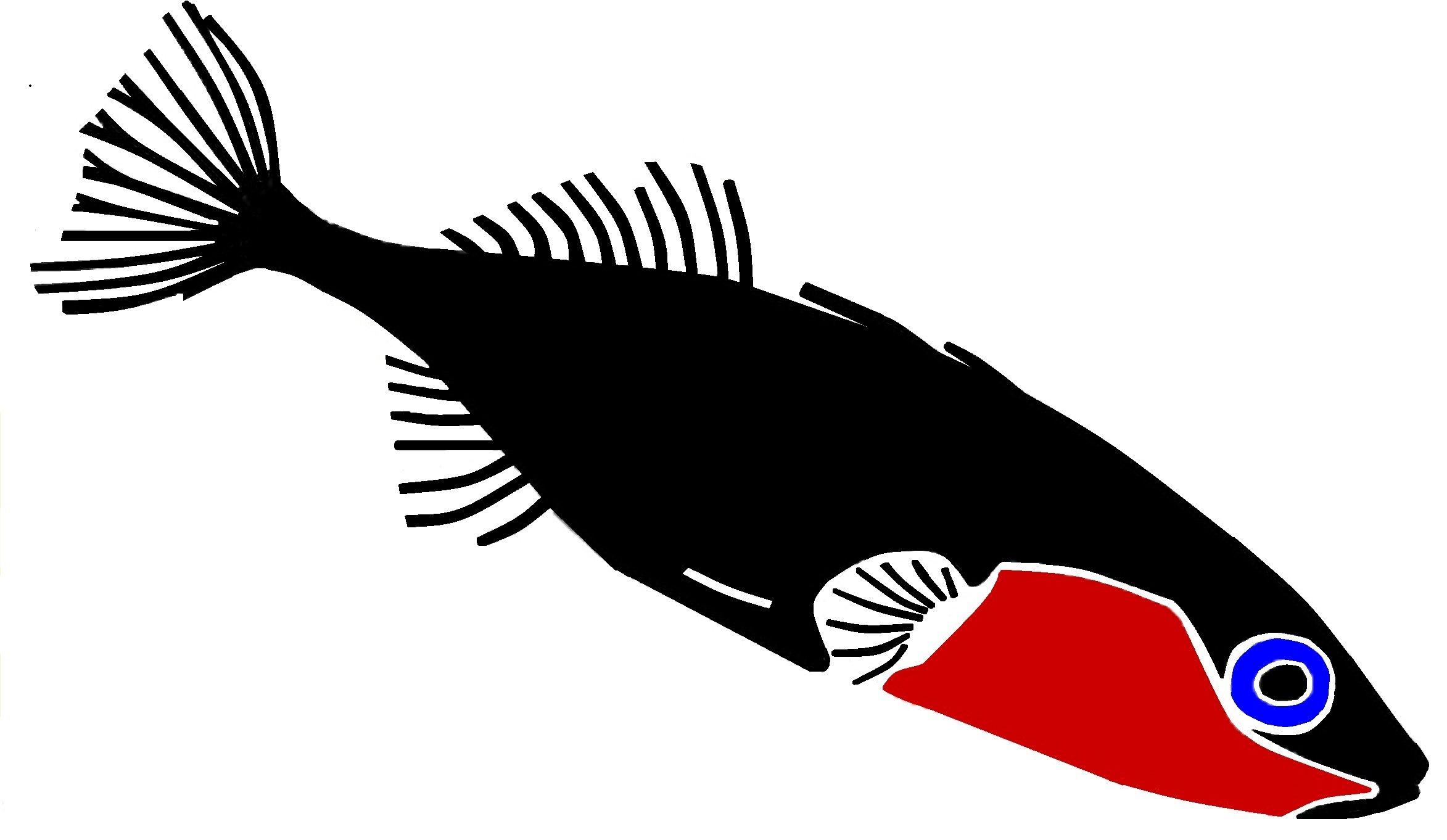Pupils make a splash in the glen with Greener Greenock
Around 100 Greenock school children have been gaining hands-on eco-experience of their local river system as part of Greener Greenock, a new project led by the Clyde River Foundation. Working with the Clyde River Foundation scientists, pupils have been assessing the health of the Carts Burn which flows through Auchmountain Glen into the River Clyde. Classes from four local Primary Schools – Aileymill (P5), All Saints (P6), King’s Oak (P5) and St Patrick’s (P6) – took part in the project which explores the themes of biodiversity, wellbeing and sustainability.
Each class spent a morning at the burn where they learned how to sample aquatic invertebrates such as mayflies and caddis flies, identified trees along the riverbank and witnessed an electrofishing demonstration – a technique used by scientists to survey fish populations. After learning how litter and pollution can impact the environment they performed a litter pick, recording the different types of litter collected. The bugs and beasties collected from the burn were taken back to the classroom and identified in a pop-up laboratory. All of the information gathered on the day – from the species of fish, vegetation and invertebrates present, to litter, invasive species and barriers to fish migration – was used to assess the health of the river and consider how we can be that little bit ‘greener’.
Dr Willie Yeomans, Catchment Manager of the Clyde River Foundation explained “We have visited the Carts Burn for the past few years to release brown trout raised by All Saints Primary as part of our Clyde in the Classroom project and identified the site as one which could benefit from some extra attention. Through Greener Greenock we discovered a healthy population of brown trout and good riverfly life, and the area is now looking much better due to the children’s litter-picking efforts. We are hoping to leave them with powerful memories of the animals and plants they see and show how, through their stewardship and responsibility, they can make a real difference in their own communities. We are grateful to the Scotrail Foundation and the Craignish Trust for supporting this project and to Inverclyde Council for collecting the litter at the end of each session.”



